DEI Council Chairs Bios (2021–2022)
The Diversity, Equity, and Inclusion Council is responsible for leading in the development, implementation, and monitoring of the University's diversity strategic action plan. The Council has three strategic priorities, led by seven dynamic leaders.
DEI Strategic Priority Committee 1: Creating a More Inclusive and Equitable Campus Community
Goals:
DEI Content and Communications
- Create and continually update a multicultural calendar shared across campuses.
- Contribute content to the DEI website/blog and social media.
- Strategize surveys and email blasts in alignment with DEI.
Empowering and Educating Faculty and Staff
- Identifying opportunities for collaboration in DEI programming among colleges, schools and departments with overarching goals.
- Establishing a DEI Ambassador program for faculty and staff who are interested in taking a more formal role in shifting campus culture.
Supporting Student Organizations
- Collaborating with Student Government Association (SGA) and Social Justice, Inclusion and Conflict Resolution (SJICR) to address and better understand the challenges faced by SGA sponsored and affinity organizations (advisor, recruitment, advisor training, membership, financial support, etc.)
- Identifying opportunities for collaboration among student organizations’ overarching goals.
- Expanding DEI Training on cultural sensitivity and conflict resolution to student leaders who often face difficult situations.
Chris D'Angelo, M.A. (He, Him, His): Director of Alumni Engagement
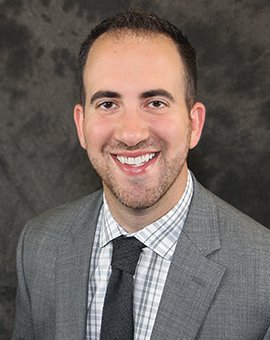
Tell us about yourself: I serve as the Director of Alumni Engagement at Rowan. My passion for higher education was sparked by undergraduate experiences working as a PRO, Resident Assistant, and student worker for the Dean of Students. I'm a two-time Rowan alum with a BA in Advertising and MA in Higher Education Administration. Outside of work I’m a proud father to my son, Landon, and dog dad to Emmy.
Why DEI work is important: As members of the Rowan community we should all strive to develop a campus culture that welcomes difference, holds people accountable for equity, and challenges pre-existing notions and misconceptions. I believe the work taking place at Rowan will only make us a more desirable institution for people to come learn and work.
Purpose of your committee: The overarching goal of our subcommittee is to create a more inclusive and equitable campus community. This can be accomplished through a combination of policy, educational & awareness campaigns, and program development/improvement.
Favorite DEI Resources: Faculty, staff and students interested in keeping up with current issues and learning more about how other institutions are tackling DEI on their campuses could benefit from following Educause (educause.edu) and Diverse Issues in Higher Education (diverseeducation.com). "Code Switch" and "The Will to Change" are two weekly podcasts with a great back catalogue of listening options, as well.
Patricia Fortunato (She, Her, Hers): Content and Program Manager, Research and Grants, NeuroMusculoskeletal Institute, Rowan University School of Osteopathic Medicine, Southern New Jersey Medication for Addiction Treatment Center of Excellence
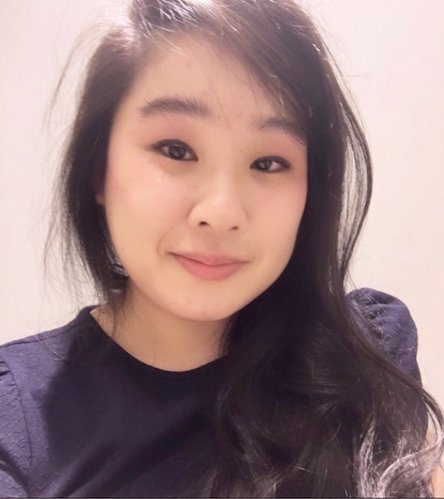
Tell us about yourself:
I've been with Rowan University for three years working in the medical subspecialty fields of pain management and addiction medicine at the NeuroMusculoskeletal Institute, Rowan University School of Osteopathic Medicine, Southern New Jersey Medication for Addiction Treatment Center of Excellence. I'm also an alum of the journalism program. Currently, I serve as Content and Program Manager for research and grants initiatives focused on physicians and other health care professionals. Our work as part of a clinical mission is rooted in a team mission and vision of increasing capacity to provide evidence-based care for patients struggling with pain, substance use, and substance use disorder. In my role, I primarily partner with physician leadership and extensively research and interpret complex clinical subject matter, and conceptualize and develop comprehensive statewide programming, including physician education trainings and inclusive prescriber education and health communication resources.
My commitment to the fields is rooted in lived experiences. I grew up aware of the issues, stigma, and shame preventing people from receiving care.
Why DEI work is important:
The work has the potential to challenge expectations that exist, pervade, and oppress in education, health care, and society overall. The work that we do has the potential to create meaningful opportunities and environments for everyone.
Purpose of your committee:
The overall and initial purpose of our committee is to create a more inclusive community across campuses. We've since formed subcommittees dedicated to content and communications, empowering and educating faculty and staff, and supporting student-led organizations.
Favorite DEI Resources: Several resources that I've found valuable, in no particular order, include:
Articles:
Cole, T. (2015). Unmournable Bodies. The New Yorker.
Park, J., Saha, S., Chee, B., Taylor, J., & Beach, M. C. (2021). Physician Use of Stigmatizing Language in Patient Medical Records. JAMA Network Open, 4(7), e2117052-e2117052.
Books:
Miller, C. (2020). Know My Name: A Memoir. Penguin Books.
Piepzna–Samarasinha, L. L. (2018). Care Work: Dreaming Disability Justice. Arsenal Pulp Press.
Videos:
TED. (2016, December 7). The Urgency of Intersectionality | Kimberlé Crenshaw [Video]. YouTube. https://youtube.com/watch?v=akOe5-UsQ2o
Asian Art Museum. (2020, August 5). Chanel Miller on "I was, I am, I will be" [Video]. YouTube. https://youtube.com/watch?v=MLn7CQqyUY8
Podcasts:
Williams, L., & Peterson, T. (Hosts). (2018, January 29). Invisible Disabilities (Ep 17) [Audio podcast episode]. In Disability Visibility Project. https://disabilityvisibilityproject.com/2018/01/29/ep-17-invisible-disabilities
(2020–present). Two Addys and a Coffee, Please [Audio podcast]. https://podcasts.apple.com/us/podcast/two-addys-and-a-coffee-please/id1536160220
Dr. Stephen Fleming (He, Him, His): Associate Dean of the College of Humanities and Social Sciences
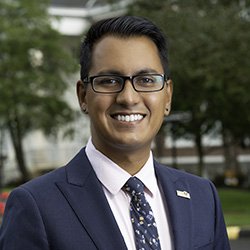
Tell us about yourself: I support the needs and programming for students in the College of Humanities & Social Sciences (CHSS). As part of my role, I prioritize the expansion of career development and experiential learning opportunities for liberal arts majors. Prior to working with CHSS, my experience was primarily in residence life & housing roles. I am an alumnus of Rowan, having done my Bachelor's and Master's degrees at Rowan. More recently, I completed my Ed.D in Higher Education at Temple University. In my free time, I enjoy trying new restaurants and training in a martial art called Aikido which I also teach at the Rowan REC Center.
Why DEI work is important: The benefits of higher education are numerous yet, a college education is not accessible and affordable for all. While Rowan has made commendable progress in creating a more diverse and equitable campus, and supporting underrepresented populations, there is still work to do. DEI work is important because it raises awareness of disparities that exist in our work and intentionally strives to eradicate them. Moreover, in supporting the recruitment, retention and graduation of underrepresented students, DEI work moves us closer to fulfilling the promise of higher education as an equalizer for all students.
Purpose of your committee: The initial charge of our committee was to create a more inclusive and equitable campus community. The committee is comprised of members from various offices on campus that have critical influence in this effort. To be more intentional and more focused in our charge, we've subdivided our committee into three subcommittees: content development and communications, empowering faculty and staff, and supporting student organizations. Each subcommittee has specific goals outlined above.
Favorite DEI Resources: I most appreciate the various DEI lectures that are provided by the many units on campus as they bring diversity and inclusion beyond race and often contextualize these issues in ways that most folks can understand. I also enjoy the programming offered by the SJICR. This office really provides a home for underrepresented students and the quality and quantity of their programming is impressive.
DEI Strategic Priority Committee 2: Recruiting, Retaining, and Supporting a More Diverse Campus Community
Last year, SPC2 developed a method for analyzing policies through an equity lens. The University Senate's Academic Policies and Procedures Committee and the Division of Academic Affairs have adopted the methodology as one of the tools they use when reviewing academic policies.
At the request of DEI, SPC2 has documented some of the University's diversity, equity, and inclusion issues and offered potential solutions. Members of SPC2 have begun working with colleagues throughout the University to realize some of these solutions, including:
- Expanding the use of inclusive language practices in the classroom, throughout campus, and in our communications with prospective students and their families
- Reducing barriers to full participation in University opportunities such as on-campus employment, experiential learning, and student leadership
- Increasing faculty involvement in student recruitment through outreach to underrepresented and marginalized communities
- Expanding scholarship funding and revising its structure to better meet the needs of underrepresented student populations.
Jeff Bonfield (He, Him, His): Director of Assessment
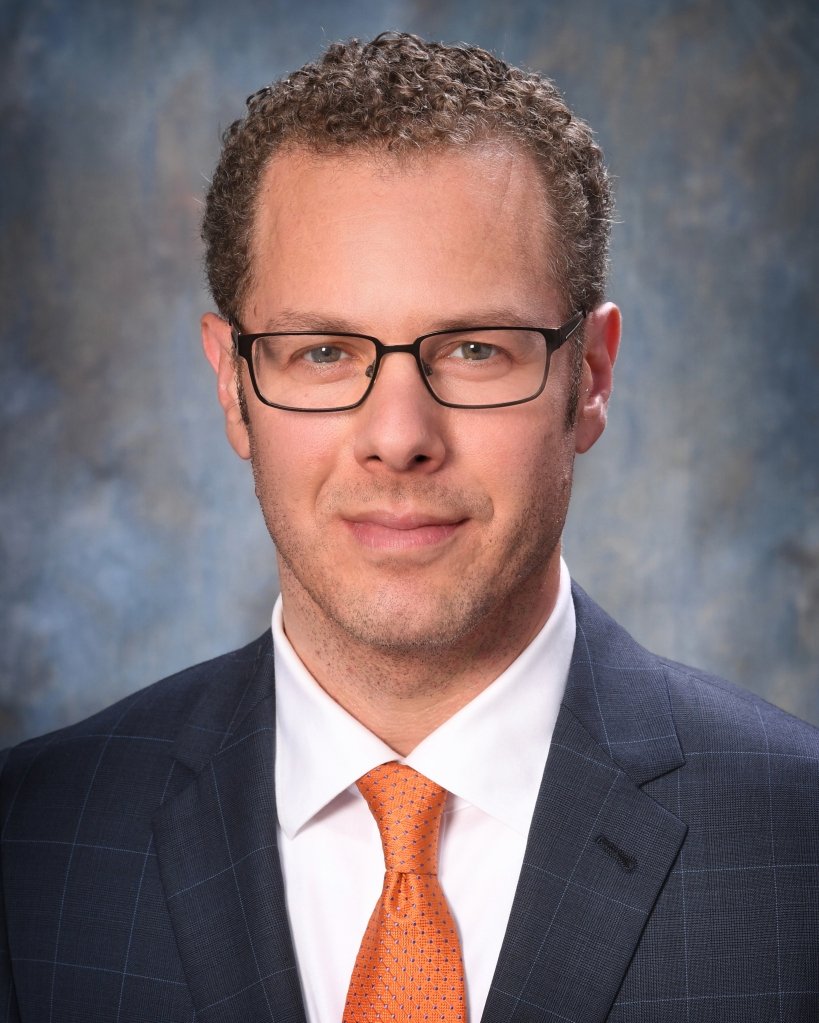
Tell us about yourself: I've worked professionally in higher education since 2001, but I started my career later than most. I attended three undergraduate institutions before earning a bachelor's degree. I also stopped out for a few semesters to work. The jobs included cashier at a health food supermarket, barista, clerk at a library for the blind, and truck driver. I held these jobs in Denver, Seattle, Austin, and the Mid-Atlantic region respectively.
After graduating college, I taught community English as a second language classes in Philadelphia for a couple of years before starting work at Drexel University as a tutor Coordinator. I soon became the director of the academic support office and continued working in that field for twelve years. It was during this time that equity became a focus of my work. In particular, I evaluated my job performance in part on the extent to which students who were underrepresented on campus were at least equally if not overrepresented in the office, both working as tutors and receiving academic support.
My commitment to these values has deepened in my current job as Director of Assessment. I believe one of the most important functions of higher education is to increase social mobility. This is particularly important for populations that have been systematically oppressed and marginalized in America. Part of my current work is making visible to faculty how students from various populations are being evaluated in their coursework
Why DEI work is important: As I thought about this writing prompt, I kept coming back to, "Why do we keep having to defend this position?" I think maybe it's because one's view on whether DEI work is important is based on personal values rather than facts. I have no illusion that my words will influence anyone's values, so I'll just state the obvious for those who agree with me.
Higher education is disproportionately white and middle class. That is true of the students, faculty, and leadership of most of the colleges and universities in America. While I said above that one of the most important functions of higher education is to increase social mobility, it is also true that at its worst higher education reinforces the status quo.
It would be wonderful if DEI work were not important, because that would mean that the people studying and working in America's colleges and universities are representative of the people living in America. I personally would see that kind of parity as an early sign that we're finally overcoming the racism, sexism, homophobia, xenophobia, etc. that are pervasive throughout US history and much of our present.
Since we haven't yet realized that dream, we have work to do. One step we can take in our own work is to ensure every student-related policy, procedure, and practice within the University affects all students equally—so, for instance, the student who works full time has an equal chance of success as the student whose education is paid for.
Purpose of your committee: To contribute to Rowan University's efforts to recruit, enroll, support, retain, and graduate a diverse student population.
Favorite DEI resources: Books have profoundly influenced my values and my understanding of the world and other people, but the books are almost entirely works of fiction. Some of my favorites are (in no particular order):
- Ralph Ellison — Invisible Man
- Leslie Marmon Silko — Ceremony
- Salman Rushdie — Midnight's Children
- J. D. Salinger — Franny and Zooey
- Toni Morrison — Beloved (The audiobook is read by the author and is mind-blowingly good.)
- Haruki Murakami — The Wind-Up Bird Chronicle
- Octavia Butler — Parable of the Sower
Dr. MaryBeth Walpole (She, Her, Hers): Professor and Chairperson in the College of Education
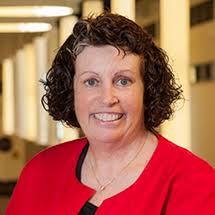
Tell us about yourself: MaryBeth Walpole is a professor in the Educational Services and Leadership department at Rowan University. Her research interests focus on access and equity issues in higher education, particularly focused on students from low socioeconomic backgrounds, students of color, and students with disabilities. Her work has been published in several journals including Research in Higher Education, The Review of Higher Education, Urban Review, NASPA Journal about Women in Higher Education, and The Journal Of Negro Education. Her books include: From diplomas to doctorates: The success of black women in higher education and its implications for equal educational opportunities for all, which she coedited and Economically and educationally challenged students in higher education: Access to outcomes.
DEI Strategic Priority Committee 3: Promoting and Supporting Inclusive Teaching, Scholarship, and Professional Development
Goals:
- Developing a Staff Toolkit
- Working to crate Targeted Harassment Guidance
- Implementing preferred names educational campaign
- Exploring recommendations to reduce bias in faculty evaluations
- Exploring recommendations for intercultural competence and diversity across the curriculum.
Dr. Stephanie Lezotte (She, Her, Hers): Assistant Dean of Graduate Studies
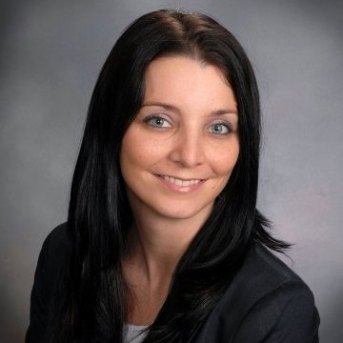
Tell us about yourself: I've been at Rowan almost 11 years working in a faculty-support capacity in the Division of University Research. Currently, I'm Assistant Dean of the School of Graduate Studies and my responsibilities now include the student experience. I remember my interest in power dynamics really emerging in high school, although I didn't yet have the knowledge to understand or the language to explain it. I was particularly interested in how notions of masculinity were reproduced, and later become interested in accessibility of resources for victims of interpersonal violence, and sexual violence on campus. After a year in an audio engineering program, I changed majors partly because the culture didn't fit me. This led to an interest in STEM representation, access, and success. Much of the DEI research I conduct assesses organizational systems and relationships and has been published in Improving Schools, School Science and Mathematics, William and Mary Educational Review, and Journal for Professional Issues in Engineering Education and Practice. I also teach courses in Rowan's MA in Higher Education program.
Why DEI work is important: Communities need to be inclusive and learn from one another to strive for equity. This is particularly important in learning environments—both formal and informal—where we meet individuals with different perspectives, interests, assets, and experiences. While inclusivity is a core component of our work, it's also important not to ignore differences and instead celebrate differences and all that individuals have to offer. In a higher education setting, differences means individuals may need different support systems. Therefore, it's critical to understand differences and ensure every student and employee is part of an environment that allows them to thrive. This is what we aim to accomplish in our inclusive teaching, scholarship, and professional development subcommittee.
Purpose of your committee? This committee centers around opportunities for inclusive teaching, learning, and professional development—whether you are a faculty, student, or staff member. Our goal is that all members of the Rowan community have access to and are encouraged to participate in inclusive professional development and that classrooms, labs/studios, and administrative spaces are welcoming places that embrace diversity. Not only do we want to showcase inclusionary work that is already happening on campus (such as research, scholarship, teaching, and activism), we also want to create new avenues in which people can get involved in work that is important to them.
Favorite DEI resources: Following critical scholars on Twitter, talking with the many students, faculty, and staff on campus who actively engage in inclusive teaching and learning, and all the books and documentaries I can get my hands on. I love Hoopla and Libby apps, which use my local library card to allow me to check out free books and movies to a phone, tablet, or e-reader. Most recent reads include: Haben: The Deafblind Woman Who Conquered Harvard Law; Between the World and Me; No Ashes in the Fire: Coming of Age Black and Free in America; We Still Here: Pandemic, Policing, Protest, and Possibility; and An Indigenous Peoples’ History of the United States.
Dr. Whitney Cox (She, Her, Hers): Lecturer of World Religions
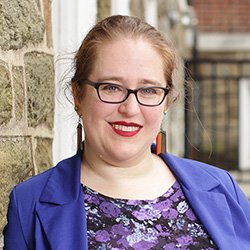
Tell us about yourself: Whitney received her Ph.D from Temple University's Department of Religion. Her work focuses on contemporary U.S. Christianity, gender, sexuality, and AIDS. She is also interested in archival research and preserving the histories of queer communities.
Why DEI work is important: DEI work is important for so many reasons, but I think one that gets overlooked is that it works against systems of oppression. Too often problems are framed in terms of single bad actors—individual people who don't know better (or who know better but just don't care)—with the implication that if we could just fix the way those individuals think, everything would be fine. Alas, even good, well-intentioned people can perpetuate oppression by not examining how the status quo is harmful. DEI work challenges the norms and expectations we all work under in order to create a better place for everyone.
Purpose of your committee? The purpose of our particular committee is to help faculty make their classes and classes places that better address the needs and perspectives of their students. One of the big ways we want to do this is by making sure that DEI work is recognized as important work. Making pedagogy inclusive takes time and deliberate effort, but that effort is often minimized or even ignored in favor of more traditional metrics of accomplishment. To make a university that values inclusivity, we have to make a university that values how much goes into making that inclusivity possible.
Favorite DEI Resources:
- blacklivesmatters.carrd.co
- scholarstrike.com/resources
- voices.revealdigital.org
- historians.org/perspectives
- radicalhistoryreview.org/abusablepast/microsyllabus-histories-of-queer-radicalism
- issuu.com/candicebenbow/docs/lemonade_syllabus_2016?e=24704410%2F35434012
- medium.com/@UVAGSC/the-charlottesville-syllabus-9e01573419d0
Questions about the DEI Council? Email us at dei@rowan.edu